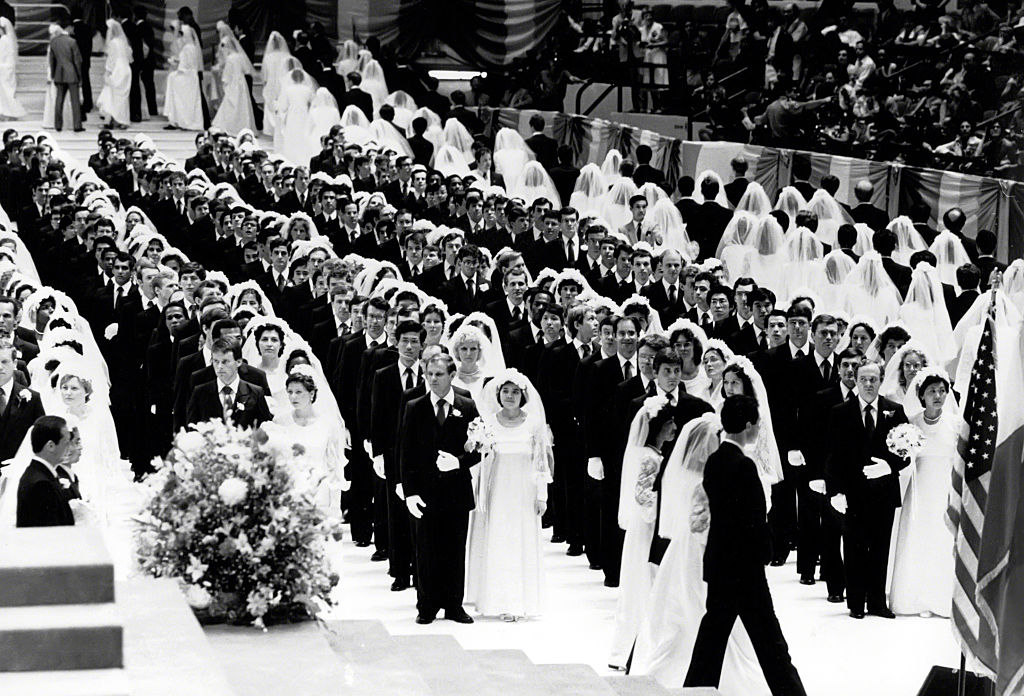A troubling trend of social isolation is afflicting young adults globally.
Back to Nature

The incoherence of feminist ideology is right there on the surface.
There’s a loud demand these days for men and women to be interchangeable. We cannot talk about specific roles, duties, or gender-specific traits of men and women, which implies that one cannot be the other, a devastating blow to the transgender movement.
I cannot affirm my father or husband as being a leader, because it’s sexist to assume that all men are natural leaders. After all, there are confident women out there who might command the same authority my father does. There are stay-at-home fathers and mothers who support their families. Society is comfortable with affirming men who are tender and women who are tough, because it breaks the mold of traditional gender roles that we’ve grown to detest. We applauded Harry Styles for wearing a dress in his photoshoot, because he stood up to the idea that “masculinity” means anything specific.
Though there certainly is good in having strong women and sensitive men, it’s telling that we squirm at the idea of men being masculine and women being feminine.
Society is programming us to feel uncomfortable with those truths, because dismantling traditional ideas of gender, and what is associated with gender, is a crucial step to dismantling our society. Social media, celebrities, and big chains are pushing the message that gender has no meaning and that we are all just individuals who are supposed to follow our feelings. If we are not definable, then we are malleable and weak, which makes us easier to control. But this agenda and this message rests on no logic, and the contradictions are screaming in our faces.
At best, according to feminism, if I want to call my father the head of the house, I’m not affirming him as a man but as a person. He just happens to be more of a leader than my mother. That’s a trait that’s specific to him as an individual and not something essential to his being a man.
Yet as soon as I want to take an internship in a STEM field, the same voices are quick to caution that I’m walking into a masculine environment. Women who work in an office are oppressed because it’s a “man’s world.” It might just be due to a statistical imbalance; if men and women are truly the same, then there would be no reason to favor men in certain positions because a woman is equally suited to the job. That is often the argument that is used, yet not consistently.
Feminists argue that men have been favored because of a patriarchal system that finds masculine qualities more suited for the workforce than feminine qualities. They argue that women bring a perspective and set of talents that should be valued in all the same ways that men are valued. In a 2019 interview with Politico Magazine, Kamala Harris said that there are not enough women filling the seats at the table: “Something I’ve seen over and over again in my own career is that women in power bring a different perspective, an essential perspective.” There is something inherent in women that is different than men, and the world is missing it by prioritizing men in power.
But you can only go so far when claiming that men and women are interchangeable before you hit reality, because at the end of the day, women don’t necessarily want to be the same as men. There’s something inherent in us that makes us different, and that’s not something that we want to belittle by saying that we can be swapped out with any guy. Women want to feel they have something unique to offer.
However, this needs to be consistently acknowledged and named. If society wants to fight for women at the table, we should be comfortable saying exactly what it is that makes women and men different and essential. We can’t act like differences between men and women don’t exist, only to pull out the vague “essential female perspective” when it serves an oppression narrative. Men are always simply individuals, but feminists on social media make a huge effort to support female small businesses, encourage women in STEM, and vote for more women in politics.
Why? Not because of individual traits these women might carry. It’s not as important that we know the specific woman behind the small business, her likes and dislikes and family history, or her qualifications. The only thing that matters is that she IS a woman. I can’t see my father as a man, but I can sure pull the woman card when I’m competing for a job or talking about how oppressed I am in the workplace.
According to standpoint positionality, the patriarchy makes men blind to oppression, which is why women can factor in their identity when they like but men have no right to do so. My father cannot lead our household as a man, but I can be excluded in my job as a woman.
We want to hold to the idea that it’s important to have women in the workplace, because there’s an underlying nature that the workplace is missing by just having men. Suddenly it’s not individual characteristics anymore but characteristics of a whole gender. Yet we can’t talk about “masculine” characteristics. And often we can’t talk about traditionally “feminine” characteristics either unless we’re talking about how they’re under appreciated.
As a woman, I’m here to tell you that it just can’t work that way. We cannot play The Woman Card and then get mad when our gender-specific traits are taken into consideration. We cannot say that women bring a unique set of talents and qualities to the world if we refuse to talk about what those talents and qualities are. I am naturally smaller, more nurturing, and compassionate than the men in my life. I have a deeper desire to be loved, cherished, and protected. The men in my life are naturally stronger, command more authority, and have a deeper desire to be respected and followed. These aren’t exclusive traits—men want to be loved too and women respected—but they do flow from real distinctions and ways of being that are not socially constructed but exist deep within us.
We are either interchangeable human beings or we have beautiful, gender-specific differences that both sexes can cultivate and be cherished and respected for. My father can be a great example of masculinity, and I can bring something unique to corporate America. But we can’t keep playing this game of trying to have it both ways. Men can’t be identity-less while women play an identity card when it’s convenient. Gender has to mean something real, all the time and in all cases.
The American Mind presents a range of perspectives. Views are writers’ own and do not necessarily represent those of The Claremont Institute.
The American Mind is a publication of the Claremont Institute, a non-profit 501(c)(3) organization, dedicated to restoring the principles of the American Founding to their rightful, preeminent authority in our national life. Interested in supporting our work? Gifts to the Claremont Institute are tax-deductible.
Ladies, go from cheap date to soul mate with this one neat trick.
They hate her ‘cause they ain’t her.
With all the concern about men in women’s bathrooms, how come no one seems worried about the converse?
What the critics of biological males in female sports miss.
Single-sex schools could help boys' classroom struggles.






